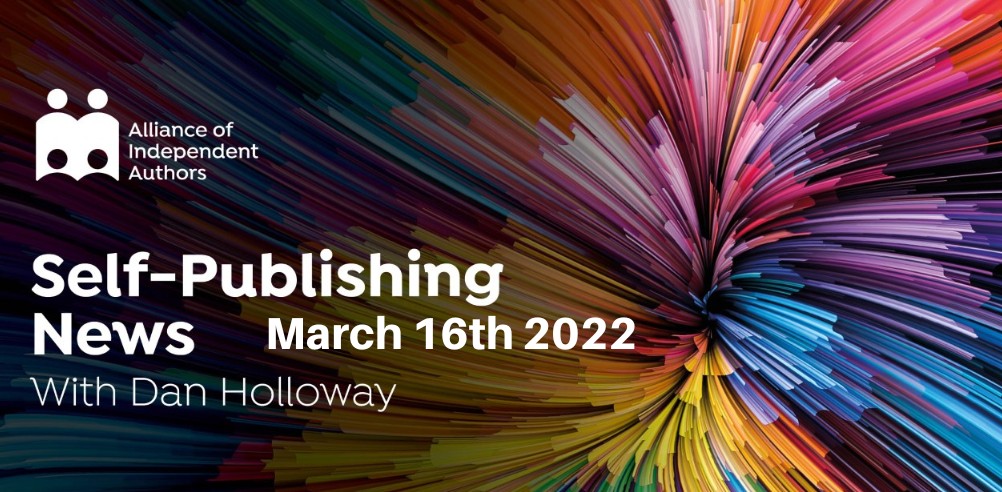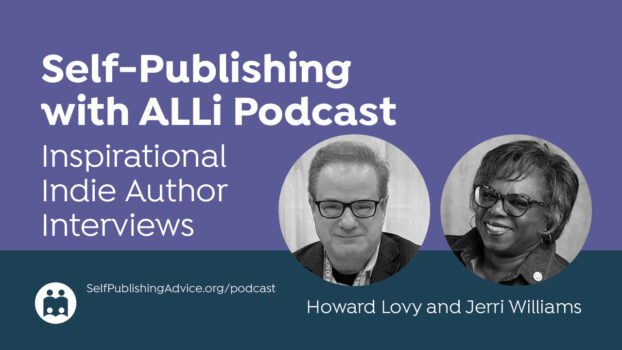In this week's Self-Publishing News Special, ALLi News Editor Dan Holloway looks at a new scheme from Creatives Rebuild New York that will pay creatives from minority backgrounds $1000 per month for 18 months.

ALLi's News Editor Dan Holloway
The new Self-publishing News Podcast is out in which Howard and I discuss, among other things, why Amazon removed indie authors' books without warning or explanation earlier this year. I very much look forward to seeing many of you on tonight's #indieauthorchat at 4pm Eastern, 8pm UK time when Tim will be leading a discussion about book fairs. Please note the time change for the next two weeks while the UK and US are out of sync!
18 months Guaranteed Income for Artists in New York
It’s been a tough time for most people in the creative space. And while as writers we might not have faced the same impact from theatre and concert hall closures as some of our colleagues, Covid has pushed many of us even closer to the brink.
That’s the context for a new scheme for artists based in New York State. Creatives Rebuild New York has established a scheme that will pay 2,400 people in the creative arts $1000 per month for 18 months.
To qualify, your household income should fall below the self-sufficiency threshold as defined here. People with the following identities will be prioritised, but that aside the process will be, it seems, a lottery:
- Black, Indigenous, and People of Color
- Deaf/Disabled
- LGBTQIAP+ (Lesbian, Gay, Bisexual, Transgender, Queer/Questioning, Intersex, Asexual/Aromantic, Pansexual+)
- Caregivers
- Immigrants
- Criminal Legal System Involvement
- Lack of Financial Safety Net
- Rural
The deadline for applications is March 25th, and it is clearly open to indie authors. I would love to think that this scheme will materially benefit some people in our community.
Pagebreak – a New Conference
It feels as though I’ve spent a lot of time recently reporting on conferences either not happening or closing down altogether. So it’s nice to be able to report on a new conference. And even better that it seems like a really interesting one. Pagebreak will happen in San Francisco on October 27th and 28th. A call for panelists hasn’t gone out yet (I’ll make sure to report when it does). But the suggested topics it might cover look like a fascinating selection.
I was particularly taken by organiser Peter Brantley’s statement:
“Our goal is to expand the boundaries of the term publishing by bringing publishers together with the wider world of the ‘people and organizations who publish things’ to address the question: ‘What is ‘Publishing’ in 2022?”
Because that statement, if the conference really runs with it, opens the door for indies to play a key part in the conversation. Some specific topics to expect to see covered include
- BookTok / Bookstagram
- NFTs / Identifiers
- Can artificial intelligences author books?
- Controlled digital lending applications
- Interactivity
- Talking about books on Discord
Bestsellers are Getting Shorter
It’s always interesting to keep abreast of the latest trends when it comes to what people are buying. In my case, I then use that as a template for what not to do – maybe I take the indie thing a bit too far. But last week saw some new research that caught my eye. Bestsellers, it seems, are getting shorter.
Now, all the usual caveats apply. This research is based on the New York Times bestseller list. So it represents a certain kind of reader in a certain market. And most important of all, it will be somewhat lacking in indie titles. But the findings, the full report on which you can read here, were still interesting. Between 2011 and 2021, the length of bestsellers fell by 51.5 pages from 2011 to 2021, from 437.5 to 386. Another interesting trend is that before 2016 long books (over 400 pages) stayed on the bestseller list longer than shorter books, but the opposite has been true since then.
I highly recommend you browse through some of the other research on the wordsrated website.
Twitter Launches a Dashboard for Creators
Making money on Twitter might not be something that many of us have thought of very often. It’s worth remembering that there are several ways that writers can use Twitter to make money. When I first joined Twitter back in early 2009, one of the most exciting things happening was the birth of Twitter poetry and micro stories, led by the likes of Arjan Basu. It never made quite the breakthrough that Instagram poetry has. Nonetheless, it showed that you can do remarkable things as a writer with a very few words. And now there are chances to monetise this. Most promising for writers of Twitter-based content these include Super Followers, who pay to access content.
Despite this, we might not be thinking of Twitter as a way of making money. But Twitter clearly thinks there are sufficient opportunities, and sufficient potential that it has introduced a dashboard to help creators keep control of their different streams. This will enable people to keep track of historic payments as well as to track their different streams.
Self-Publishing News: New York Launches 18 Month Guaranteed Income Scheme for Creative Artists Share on XUpcoming Conferences and Events
Bay Area Independent Publishers Association (BAIPA) – Zoom meetings the 2nd Saturday of each month




